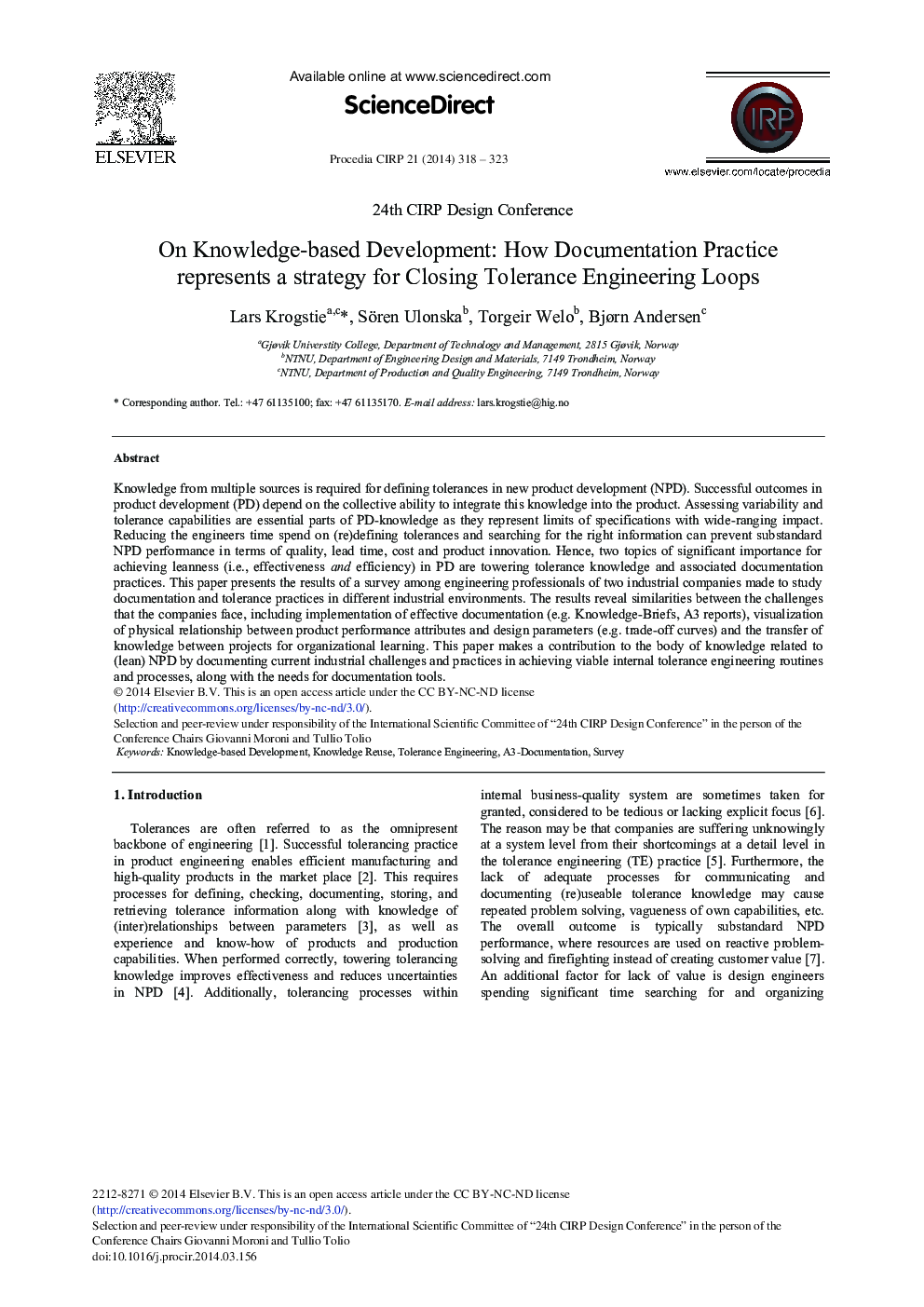| Article ID | Journal | Published Year | Pages | File Type |
|---|---|---|---|---|
| 1700046 | Procedia CIRP | 2014 | 6 Pages |
Knowledge from multiple sources is required for defining tolerances in new product development (NPD). Successful outcomes in product development (PD) depend on the collective ability to integrate this knowledge into the product. Assessing variability and tolerance capabilities are essential parts of PD-knowledge as they represent limits of specifications with wide-ranging impact. Reducing the engineers time spend on (re)defining tolerances and searching for the right information can prevent substandard NPD performance in terms of quality, lead time, cost and product innovation. Hence, two topics of significant importance for achieving leanness (i.e., effectiveness and efficiency) in PD are towering tolerance knowledge and associated documentation practices. This paper presents the results of a survey among engineering professionals of two industrial companies made to study documentation and tolerance practices in different industrial environments. The results reveal similarities between the challenges that the companies face, including implementation of effective documentation (e.g. Knowledge-Briefs, A3 reports), visualization of physical relationship between product performance attributes and design parameters (e.g. trade-off curves) and the transfer of knowledge between projects for organizational learning. This paper makes a contribution to the body of knowledge related to (lean) NPD by documenting current industrial challenges and practices in achieving viable internal tolerance engineering routines and processes, along with the needs for documentation tools.
